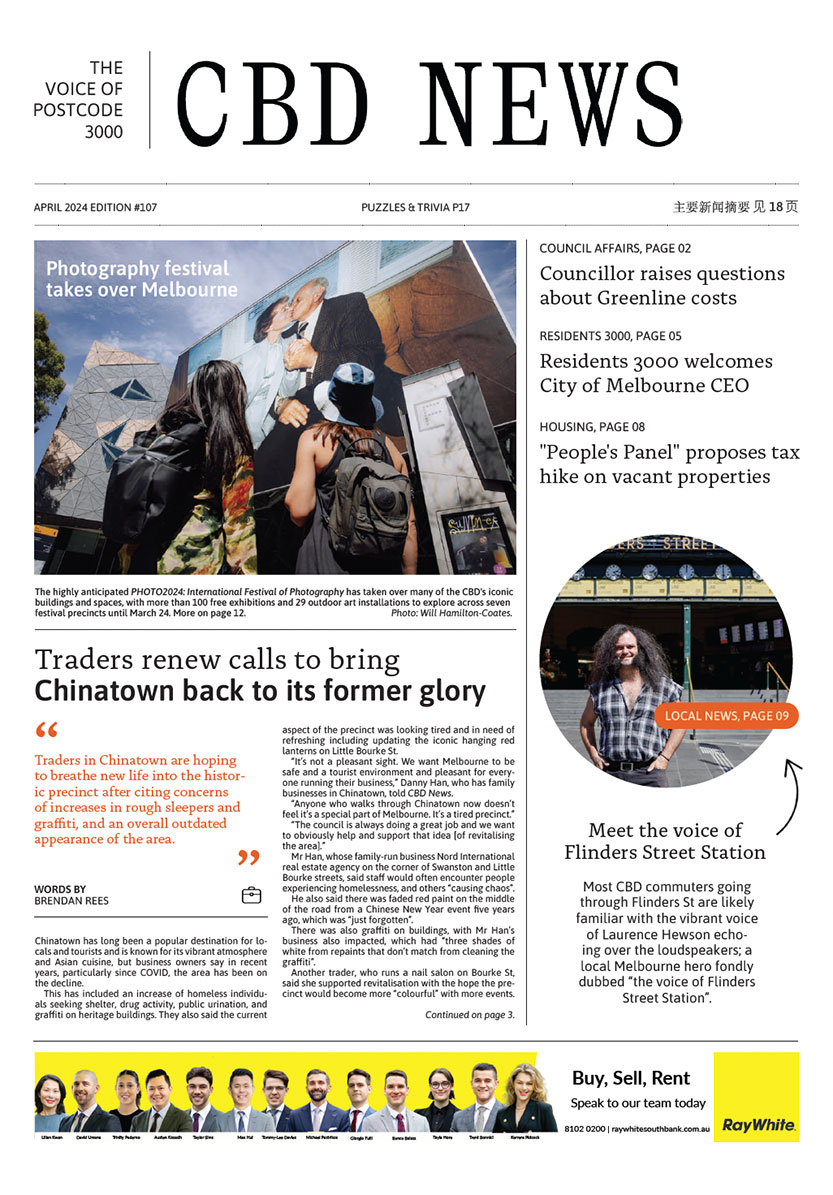A stable space for young people in need
By David Schout
A world-first youth crisis accommodation centre has opened in the CBD, in what providers hope will provide greater stability for the city’s young people doing it tough.
The new 18-bed facility at Frontyard Youth Services on King St allows those aged 12-25 to be housed in the same facility that offers 24/7 emotional and practical assistance – a model believed to be the first of its kind.
The modern, “trauma-informed” facility further expands services offered by Frontyard, which has helped young people experiencing homelessness in Melbourne for 30 years.
“The change is so dramatic and extreme, it’s hard to think this is the same place as 12 months ago,” Frontyard operations manager Rob Hosking told CBD News.
Prior to now, young people would come to Frontyard, among others, for housing, health, or employment services, but leave when the facility closed at day’s end.
Hosking said the idea of on-site accommodation was floated a few years ago when he and his team identified 40-60 young people in the city that the system simply didn’t cater for.
“They were bouncing around different hotels, refuges, emergency departments, the justice system. These are young people that are really damaged and traumatised and weren’t getting the adequate service response,” he said.
From there, a model was proposed that featured both the existing services alongside crisis accommodation upstairs.
“It was about meeting their needs and also disrupting their transition into long-term homelessness,” Hosking said.
That would come to include 24/7 support – a huge step forward in the homelessness space.
“We’re there any time of the night to sit with them and meet their needs. That’s what makes the model unique, because most of the other programs out there don’t offer that level of holistic support.”
Perhaps most importantly, the accommodation gives stability for those who have never had it.
“There’s a young man I was just chatting to who, for the first time I can remember – and he’s probably been coming to Frontyard for three years – has stayed somewhere for more than a couple of nights. That’s a pretty powerful thing. We’re now able to offer something for these kids who historically were just sleeping rough or staying in rooming houses and dodgy hotels.”
More than just stability, housing young people in the same facility as caseworkers ensures a far closer relationship and a greater ability to determine what’s next in each individual case.
“We can see them every day, we can meet with them and discuss their goals and case plans. Their caseworker is just one flight of stairs away rather than us relying on them coming in and catching them sporadically when they do.”
“Because the young people are more accessible to us, it makes it easier for us to help them progress.”
Hosking, who has worked at Frontyard for 11 years, has seen the facility undergo several changes. He said the new design was the third “version” of Frontyard he had worked in.
“It’s evolved from a very security-focused, institutionalised-type space to a more client-centred youth service with lots of colour. Now, we’re in a very trauma-informed area. It’s very white and the furnishings are quite soft – all designed to help young people remain calm.” (Read more about the design by architects Fender Katsalidis on page 7).
Of the new 18-bed facility, Hosking said 14 were used for longer stays, and four for short-term or overnight beds, available to young people as an alternative to a hotel.
Frontyard’s key objective, however, was to transition everyone who enters its doors into more permanent accommodation.
“Our view is that young people can stay here for as long as they need. But it is crisis accommodation, and short-term, and we want to support as many people as we can so we can’t have them living there forever. We work very proactivity to find what’s next.”
The reality, however, was a continual and complex struggle.
“For a lot of these kids, there aren’t a lot of options beyond the program we have here due to their vulnerability and their needs. It’s quite difficult to identify a housing pathway they can sustain when they have very little access to the means and resources to live independently.”
Before working through accommodation options, caseworkers and other professionals at Frontyard first and foremost address complex trauma and personal issues.
And a certain two new staff members are proving popular in helping young people speak about their issues.
Alfred and Missy, Frontyard’s resident therapy dogs, help alleviate stress and anxiety.
“We know a lot of young people have anxiety with engaging in mental health services and the idea of traditional talking therapies doesn’t always stack. We’re having a lot of success with mediums like music, art and now animals.”
Hosking paid tribute to the “real community effort” that saw the project take shape, including support from government, philanthropy and industry partners, and external contractors who did pro bono work.
“It’s good to know there’s so many people out there who care about young people and homelessness and contributed their time and money to get this over the line.”

Backloading across borders with Transcorp – navigating interstate moves with ease






 Download the Latest Edition
Download the Latest Edition